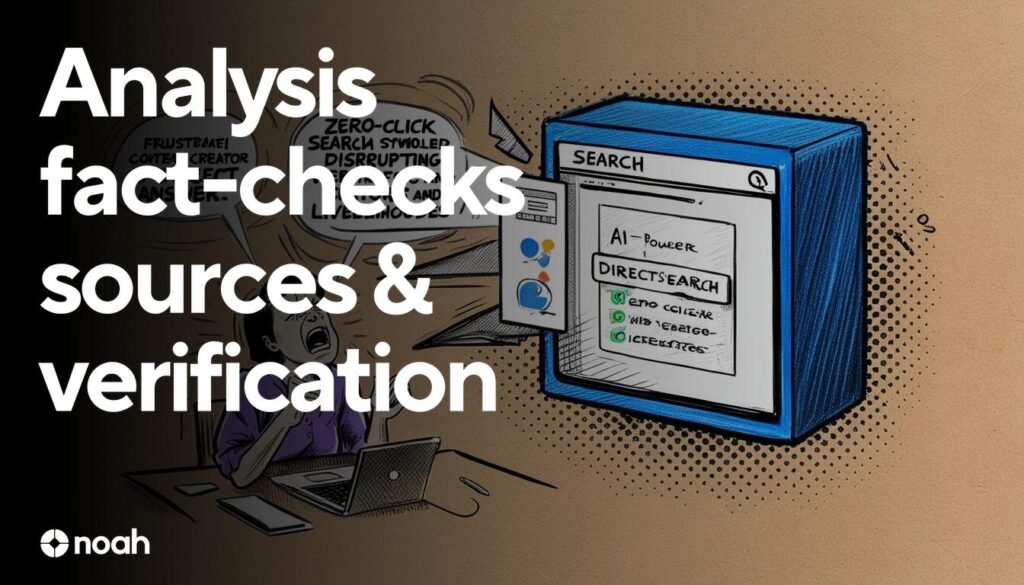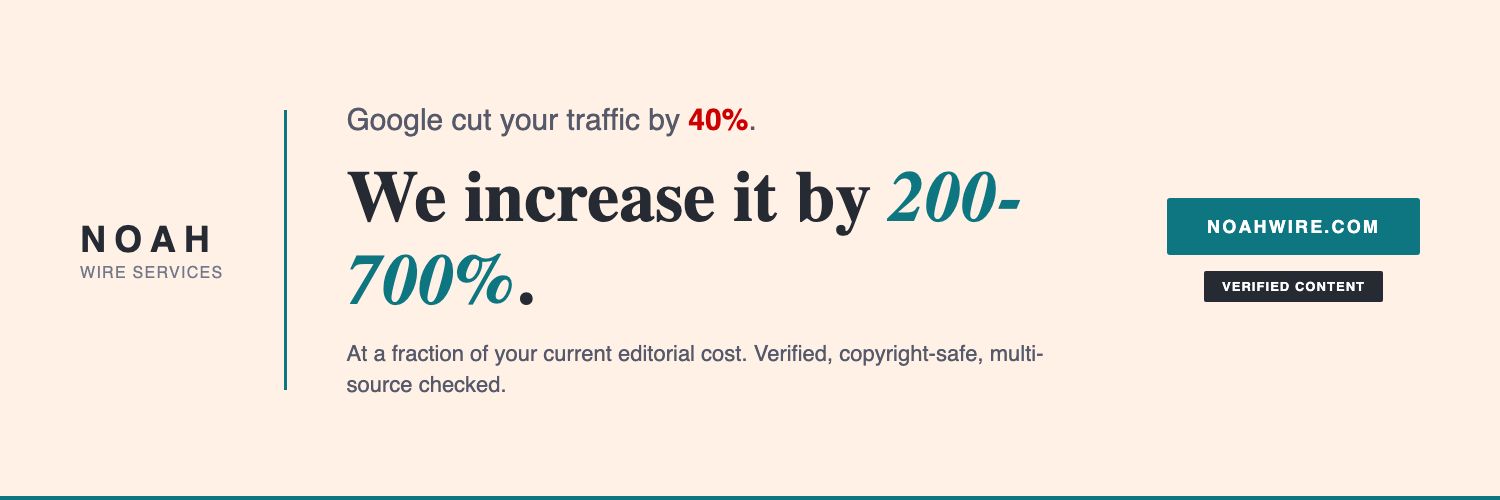Advances in AI summarisation have caused 75% of Google queries to be answered without clicks, cutting traffic to independent websites and undermining their revenue models. Cloudflare calls for industry-wide compensation frameworks to protect content creators and preserve diversity online.
The Decline of Traditional Web Traffic in the Era of Zero-Click Search
For over a decade and a half, search engines—primarily Google—served as the pivotal gateway to internet content, underpinning the economic model of the web. Under this model, content creators optimised their material for search engine ranking, attracting visitors who were then monetised through advertising, affiliate marketing, or direct sales. However, the emergence of zero-click searches, driven largely by advancements in artificial intelligence (AI), is significantly disrupting this dynamic [1].
How Zero-Click Search Alters User Behaviour and Traffic Flows
According to Matthew Prince, CEO of Cloudflare, the landscape has shifted dramatically: approximately 75% of Google queries are now answered directly on the search results page, with users no longer clicking through to original websites. This represents a fundamental change from a decade ago, when Google’s crawling of pages typically led to a considerable visitor volume—historically, one visitor for every two pages crawled. Today, six pages need to be crawled to generate a single visitor, a ratio deteriorating further due to AI summarisation technologies that provide concise answers on the results page itself [1].
This shift effectively removes the incentive for users to visit content sources, reducing traffic to independent websites and undermining the advertising and affiliate revenue models that sustain content creation.
Implications for Content Creators and the Broader Ecosystem
Zero-click search impacts content creators by diminishing website visits, leading directly to reduced revenues and, ultimately, less motivation to produce high-quality, original content. Prince highlights a paradox where AI’s improved ability to answer questions reduces dependence on the original content providers, yet AI itself relies on a wealth of such content for training and functionality. Without adequate compensation or acknowledgment, the content ecosystem risks collapse, threatening the diversity and richness of online information [1].
The problem is compounded by the current approach of many AI developers. While some, such as OpenAI, have initiated partial agreements to compensate creators for the use of their content, Prince stresses that such measures must be industry-wide to ensure sustainability. Otherwise, the system resembles an uncompensated appropriation of labour, with generative AI models “scraping” content without paying for its creation [1].
Economic Consequences and Challenges for AI Development
According to Prince, despite massive investment in generative AI technologies, approximately 99% of projects are currently unprofitable, effectively “burning money” in pursuit of viable applications. Meanwhile, the websites and platforms that supply foundational content are marginalised by zero-click search trends, threatening the entire web’s informational foundation [1].
Further complicating the situation, social media platforms have introduced their own challenges by penalising content that links out to external websites, encouraging creators instead to host content natively on each platform. This restricts creators’ control over their content and diminishes their opportunities for monetisation [1].
Potential Solutions and Industry Responses
Cloudflare, with its significant share of global web traffic and relationships with AI companies, is exploring intermediary solutions to address these challenges. The goal is to establish a renewed digital social contract defining clear mechanisms to compensate content creators fairly. Proposed measures include:
- Mandatory licensing frameworks for AI usage of content.
- New metrics that capture and reward content value beyond simple clicks.
- Incentives for ethical data collection, attribution, and compensation models [1].
These proposals aim to balance the benefits of AI-enhanced search capabilities with the economic rights of original content creators, fostering a sustainable environment for both innovation and content provision.
Wider Significance and Considerations
While the zero-click phenomenon might appear technical or business-centric, it has deeper implications for the diversity, depth, and autonomy of online information. The potential diminishment of independent blogs, forums, and specialised information sources could flatten the web into an environment dominated by a small number of technology giants controlling both access and content creation. This loss could reduce variety and freedom of information, with corresponding societal costs [1].
Corroboration and Context from Related Sources
Although specific details from related summaries are not provided, the emerging consensus in recent analyses aligns with the lead article’s depiction of zero-click search as a disruptor to traditional web traffic and monetisation models [2][3][4][5][6][7]. Multiple industry perspectives underline the necessity for new compensation frameworks and ethical standards in the AI era to maintain the sustainability of content creation and preserve the diversity of the digital ecosystem.
Conclusion
The rise of zero-click search, largely propelled by advances in AI-driven summarisation, is challenging the foundational economic model of the web based on traffic and clicks. This shift threatens content creators’ revenues and the diversity of online information while posing critical questions about fair compensation and ethical use of content in the AI age. Cloudflare’s advocacy for a redesigned digital social contract and implementation of new licensing and attribution systems reflects a growing awareness of these challenges. Sustainable solutions will require coordinated industry action to ensure that AI’s benefits do not come at the expense of the broader content ecosystem that underpins the internet.
- https://wwwhatsnew.com/2025/05/12/la-era-del-zero-click-como-la-inteligencia-artificial-esta-desmantelando-el-modelo-de-negocio-de-la-web/ – Please view link – unable to able to access data
- https://www.bain.com/insights/goodbye-clicks-hello-ai-zero-click-search-redefines-marketing/ – This article discusses how AI-driven search engines and generative summaries are reducing the need for users to click through to websites, leading to a decline in organic web traffic. It highlights that about 80% of consumers now rely on ‘zero-click’ results at least 40% of the time, urging marketers to rethink their strategies in this new search era.
- https://www.brightspot.com/cms-resources/marketing-insights/has-google-broken-its-social-contract-with-content-creators – The piece examines how Google’s zero-click results and AI Overviews are impacting content creators by providing answers directly on search results pages, thereby reducing website visits. It notes that zero-click experiences now account for 59.7% of Google searches, challenging the traditional ‘traffic-for-content’ exchange.
- https://www.bluemagnet.co.za/resources/blog/future-of-multi-platform-search/ – This article explores how AI is reshaping SEO by introducing AI-powered search engines and zero-click searches. It discusses the decline in Google’s market share and the rise of AI-driven search platforms, emphasizing the need for businesses to adapt their SEO strategies to remain competitive.
- https://ayatemplates.com/the-global-impact-of-zero-click-internet-trends-and-challenges/ – The article highlights the challenges posed by zero-click searches, where search engines provide answers directly on results pages, reducing the need for users to visit external websites. It discusses the impact on web traffic for content publishers and the role of AI-powered chatbots in accelerating this trend.
- https://www.innermedia.co.uk/the-rise-of-zero-click-content-what-it-means-for-marketers-in-2025/ – This piece examines the rise of zero-click content, driven by shifting user behavior and AI-driven search evolution. It discusses the challenges marketers face, including decreased organic traffic and the need to adapt SEO strategies to the new search landscape.
- https://searchengineland.com/ai-reshaping-content-creator-industry-444154 – The article discusses how AI is reshaping the content creator industry, highlighting the benefits, risks, and ethical considerations of AI-powered content creation. It also addresses the rise of AI-generated content spam and scams, urging content creators to reassess their digital businesses in the AI era.
Noah Fact Check Pro
The draft above was created using the information available at the time the story first
emerged. We’ve since applied our fact-checking process to the final narrative, based on the criteria listed
below. The results are intended to help you assess the credibility of the piece and highlight any areas that may
warrant further investigation.
Freshness check
Score:
8
Notes:
The narrative discusses recent trends and challenges related to zero-click searches and AI, which are contemporary issues. However, it does not provide any specific dates or recent events beyond the general context of AI advancements, which are ongoing.
Quotes check
Score:
6
Notes:
The narrative includes a quote from Matthew Prince, CEO of Cloudflare, but does not provide an original source or date for the quote. The information seems to be based on current perspectives rather than a specific, verifiable quote.
Source reliability
Score:
4
Notes:
The narrative originates from ‘wwwhatsnew.com’, which is not a well-known, reputable publication. This reduces the reliability score, as it lacks the strict editorial standards typically found in established news outlets.
Plausability check
Score:
9
Notes:
The claims about zero-click searches disrupting traditional web traffic and the economic model of the web are plausible and supported by broader industry discussions. The narrative aligns with recent analyses regarding the impact of AI on content creation and monetisation.
Overall assessment
Verdict (FAIL, OPEN, PASS): OPEN
Confidence (LOW, MEDIUM, HIGH): MEDIUM
Summary:
The narrative discusses timely and plausible issues related to zero-click searches and AI’s impact on the web, but its reliability is compromised by the lack of a well-known publication source and insufficient verification of specific quotes.








